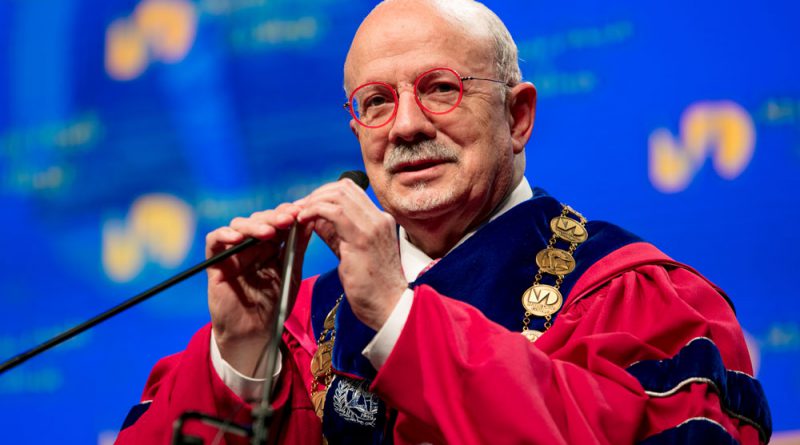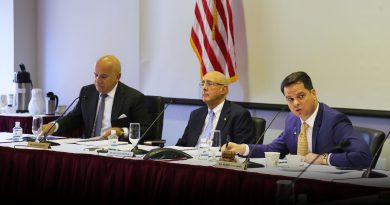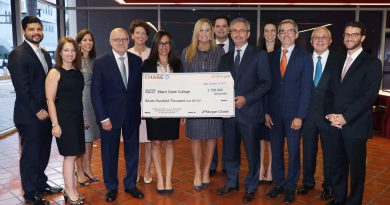Search Committee Provides List Of Five Frontrunners In Search For New MDC President
Miami Dade College’s presidential search committee provided a list of five frontrunners to replace outgoing president Eduardo J. Padrón during a sometimes heated meeting at the College’s downtown campus today.
The meeting, the second of five announced gatherings, formally launched the search process for the next college president after Padrón announced on Feb. 1 that he would be retiring from the College at the end of August. He has been at the College nearly 50 years, almost 25 of them as college president.
John T. Mestepey and Kim M. Morrison, managing directors of Diversified Search, the firm hired by the College to aid it in its search, said 352 people have been contacted about the position, according to their report. Of those, 42 have submitted applications, with five remaining active candidates; five on hold; and 32 candidates no longer under consideration.
The five active candidates include Lenore Rodicio, MDC’s executive vice president and provost; Paul Broadie II, interim president of Gateway Community College in Connecticut; Jose Fierro, president of Cerritos College in Norwalk, California; William Latimer, president of the College of New Rochelle in New Rochelle, New York; and Carlos Padin Bibiloni, chancellor of Universidad Metropolitana in Caracas, Venezuela.
At one point during the meeting, Bernie Navarro, the chairman of both the presidential search committee and Board of Trustees, raised his voice during the discussions. They eventually set June 6 as the deadline to establish a list of eight to ten candidates moving forward to the interview process.
However, the final deadline for candidates to submit applications is June 14. If they pass a screening by Diversified Search and impress the Committee, they will move forward to interviews on June 19 and 20. A list will then be provided to the Board of Trustees to review during their June 27 meeting.
In regards to the contentious debate over the deadline dates and overall search, Navarro said he is not surprised because the transparency laws, which make the process public, can be uncomfortable for candidates who are currently employed elsewhere.
“This is the gold standard of institution,” Navarro said. “They’re going to have to risk what they have. It’s a very real dynamic.”
Despite the tricky situation, Jose K. Fuentes, vice chair of the Board, has confidence in the process.
“I can’t go into a process thinking the process isn’t going to work. You have to go into the process thinking you’re going to find the best candidate,” Fuentes said. “We’re going to count on this Committee to provide us with the best candidates to look at with all seriousness and move from there.”
For the interviews, the committee members were provided a list of interview questions by the search firm. They are not a set list of questions, but instead ones meant to guide committee members in probing the applicants. Candidates will not receive the list of interview questions before the official interview, however, each candidate will be prepared before the process, Morrison clarified.
Overall, the Diversified Search firm and presidential search committee are seeking presidential candidates that not only represent that best interests of the College, but will help the institution grow higher than it already has.
“We want to find that leader with the innovation, someone that can manage the political landscape,” said Navarro during the meeting. “Our political leadership doesn’t want to hear from a lobbyist form the person themselves. Finding someone that invest our dollars to better our completion rates. We have a large population of students that are immigrants or are working.”
Staff Writer Heidi Perez-Moreno contributed to this report.




